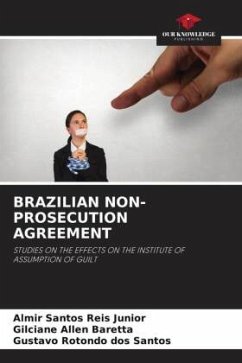The main objective of this work is to examine the requirement of confession as a prerequisite for the conclusion of the agreement not to prosecute and its consequences in the criminal action for the celebrant and possible co-accusers. Preliminarily, an approach will be made about the models of consensual criminal justice in its general aspect, observing, as an example, the Italian and Portuguese consensual models. Next, the consensual movement in Brazil and its mechanisms will be discussed, verifying the main characteristics of the criminal dealings in Brazil. Finally, the main aspects of the confession and its requirement for the execution of the ANPP will be analyzed, also examining the possible consequences of this assumption in criminal proceedings, in the light of the principles of due process of law, the adversarial process and the right not to self-incrimination and reaching, finally, the conclusion that the requirement, as well as the use of confession that arises from itas evidence in criminal proceedings to the detriment of the beneficiary of the agreement and co-defendants is a direct offense to the constitutional order in force.
Bitte wählen Sie Ihr Anliegen aus.
Rechnungen
Retourenschein anfordern
Bestellstatus
Storno








